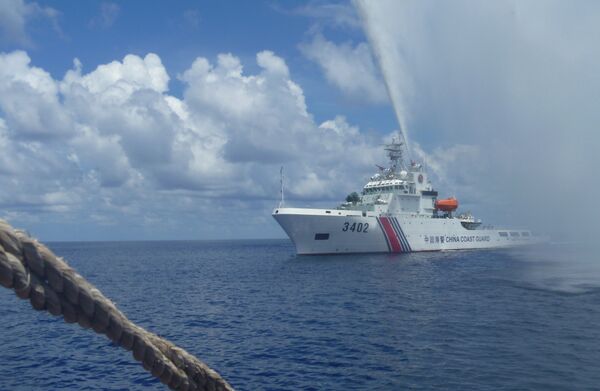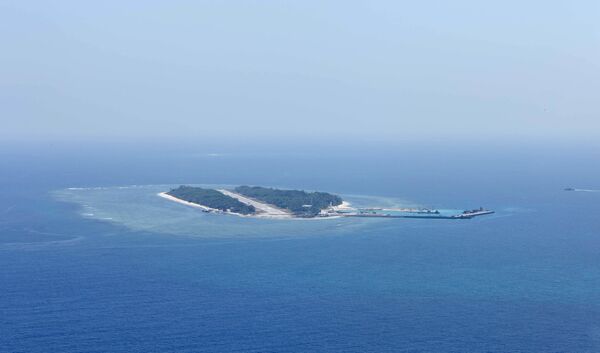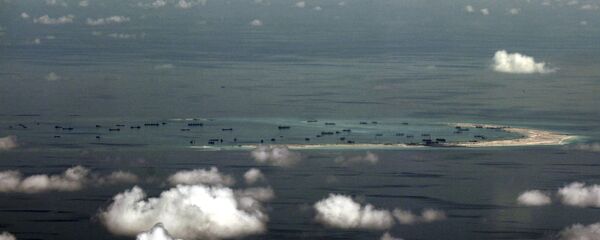The interview came after the China Daily newspaper quoted unnamed diplomatic sources as saying that Beijing called on the Philippines not to consider the results of The Hague-based arbitration panel on the South China Sea, due to be announced July 12.
According to the newspaper, China made it plain that it will not resume negotiations with the Philippines if they are based on the decisions of The Hague arbitration court.

Negotiations between China and the Philippines may include "such issues as bilateral cooperation in the scientific sector if Manila postpones The Hague court's decisions ahead of the talks," the China Daily said.
Commenting on the matter, Vladimir Yevseyev told Sputnik that the Philippines should focus on clinching a compromise with China so as to avoid the deterioration of bilateral ties.
"According to available information, China has serious internal levers of influence on the Philippines authorities. So I think that Manila should seek a compromise in order not to create additional difficulties especially now that it is not supported by the United States," he said.
He was echoed by Shen Shishun, of the China Institute of International Studies, who also called for developing bilateral collaboration during a separate interview with Sputnik.

When asked whether Manila is able to demonstrate political wisdom by respond to Beijing's proposal, Shishun remained cautiously optimistic about the issue.
"This is the way for the Philippines to improve relations with China. Now that Rodrigo Duterte came to power in the Philippines, there is a hope for the improvement in Sino-Philippine relations," Shishun said.
Right now, The Hague arbitration court is dealing with the Philippines's lawsuit against Beijing over its allegedly illegal actions in the South China Sea.
At the time, Philippino Navy ships detained eight Chinese fishing vessels which Manila claimed were involved in poaching in the area, something that prompted the Philippines to lodge the lawsuit.
The document specifically points to Beijing publishing a South China Sea map with the so-called U-shaped line which covers almost 90 percent of the sea area. The lawsuit questions whether this interpretation is in line with the UN Convention on the Law of the Sea.




